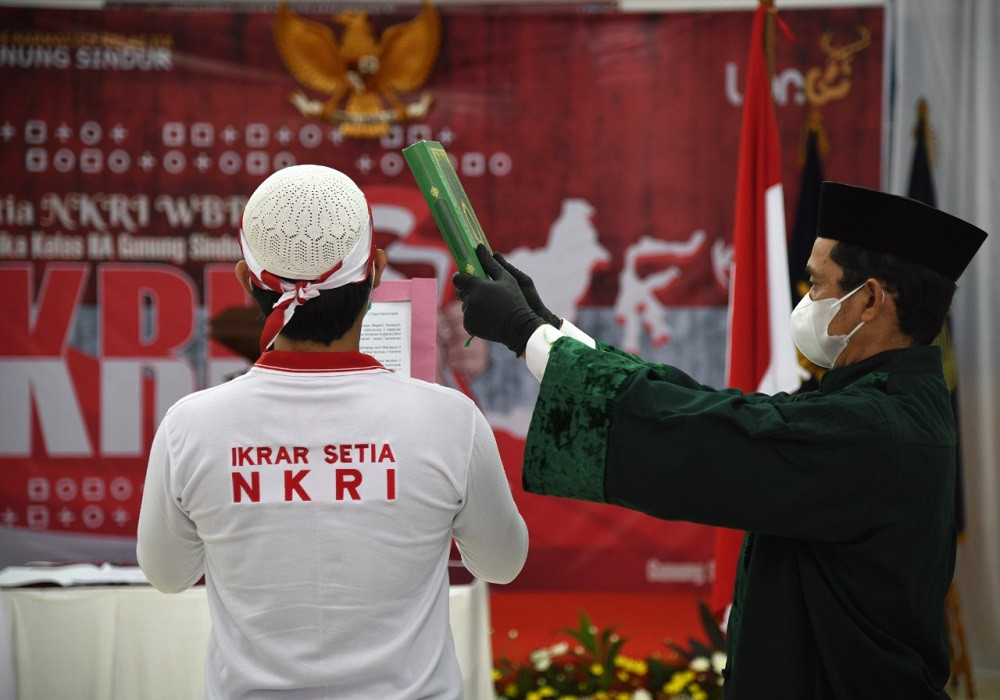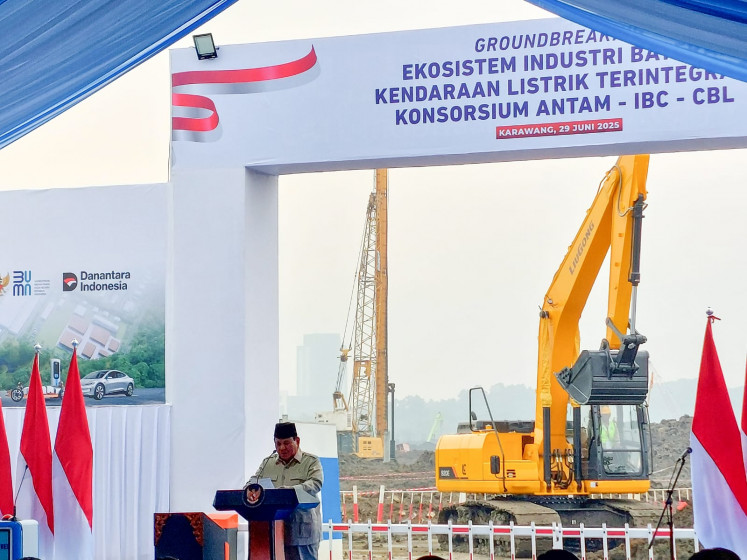Popular Reads
Top Results
Can't find what you're looking for?
View all search resultsPopular Reads
Top Results
Can't find what you're looking for?
View all search resultsIndonesia's failure to deradicalize: Where to put our regret
Efforts to detect terrorist plots and actions are crucial. However, countering terrorism must also take into account the other side of the equation: improving societal immunity to terrorism.
Change text size
Gift Premium Articles
to Anyone

T
errorism is an issue of identity with multifaceted causes ranging from economic, cultural, psychological and political factors. The roots of terrorism are often intertwined and interact with each other.
By using the propositions offered by the Club de Madrid research (2005), this empirical article will examine the factors causing the increase in Indonesia's terrorism index in 2017-2018. I argue that economic reasons play a trivial role in an individual’s decision to join a terrorist group. Instead, their decision-making is predominantly influenced by psychological factors; and there is a significant mismatch between what caused the increase in terrorism index in 2018 and what the Indonesian government had strategized for its soft counterterrorism measures – it neglects psychological analysis, which was the very factor affecting the terrorists’ participation.
Efforts to detect terrorist plots and actions are crucial. However, countering terrorism must also take into account the other side of the equation: improving societal immunity to terrorism. In other words, observing and preventing radicalization that occurs at the individual and communal levels must also be prioritized.
Club de Madrid, through its analysis of economic factors, has two main sub-propositions: the effect of incentives on the willingness of terrorists and rapid economic changes.
According to Club de Madrid's findings, members of a terrorist group may decide to join a terrorist group after considering the economic incentives they will receive. This proposition is indeed applicable to the case of Indonesia. In Fitriani et al.’s research in 2018, it was found that the majority of respondents decided to join a terrorist group because they were given incentives in the form of cash by the group’s senior members.
The second sub-proposition of Club de Madrid's economic factors is rapid economic change. Club de Madrid states that community groups trapped in a society with rapid economic change have a high tendency to engage in acts of terrorism.
This sub-proposition is not applicable in the case of Indonesia in 2017-2018. There was no rapid change in Indonesia’s gross domestic product growth, inflation rate and household spending. Indonesia’s economy indeed grew from 5.2 percent in 2017 to 5.3 percent in 2018. However, this increase cannot be categorized as “rapid or a sudden shock”. These changes are relatively trivial compared to fluctuations in GDP growth in the era of the global financial crisis in 2008, for example.
Fitriani et al.’s findings (2018) argue that the cause of the increasing number of terrorists in Indonesia in 2018 was more dominantly influenced by psychological reasons, while common causes of terrorism such as structural marginalization were not found in this case. In addition to the incentive factor, the two main factors affecting the increased participation in 2018 are: existential anxiety and social bonds.
Existential anxiety is a phenomenon where terrorists feel lacking or even having no purpose in life, hence a lack of identity and generally feeling of powerlessness. In contrast to moderate groups, extremist religious groups provide religious information whose content tends to be on the theme of mission of change, collective movement, solidarity and in general offer a heroic sense for potential followers.
The second psychological factor is the background of the new terrorists, the majority of whom have obstacles to integrate into their own community. The need to develop social bonds tends to be very strong in this segment of society.
Psychological causes of Indonesia's 2018 terrorism are also very relevant in illustrating Daniel Druckman's (1994) explanation about in-group loyalty and patriotism. Individuals tend to have a need to belong to a group. This is because the incorporation of an individual into a group is positively correlated with an increase in the individual's self-confidence. When members are placing their identity subordinate to the group identity, group loyalty can lead to fanaticism and defensive behavior when the value of their group is being questioned.
The Indonesian government opted for both hard and soft counterterrorism approaches in response to the increased terrorism index in 2018. The soft approach directly targets individuals at the community level using various methods. In Indonesia's case, the soft approach manifests in the spread of antiterrorism and pro-peace campaigns and distribution of incentives for segments of society that are considered vulnerable to radical ideologies.
However, the government’s soft approach lacks the very basic analysis on group loyalty and cohesion, and psychological analysis in general. This is very unfortunate considering that the factors affecting new terrorist participation are predominantly psychological.
There is a very significant mismatch in resolving the problem, reflected by how the existing antiterrorism campaign is unable to interact with the main root of the problem: the absence of a sense of belonging to a community.
Beautifully designed posters that spread antiterrorism messages will not psychologically affect potential terrorists if their desire to have social bonds is still very much significant. Apart from the campaign, the provision of incentives in the form of cash for suspects and former terrorists will not interact with the root of the problem either. Moreover, as discussed earlier, incentives are only a trivial part in the motivation of individuals to join radical groups.
Supposedly, the soft approach taken by the Indonesian government focuses on building societal resilience against exposure to radical ideology by increasing the attachment of individuals to their community.
In Italy, Spain and the United Kingdom, the government has carried out deradicalization efforts based on an appropriate analysis of group loyalty and cohesion. To facilitate exit from the group, Club de Madrid (2005, pg. 11) found that the government offers amnesty programs (act of forgiveness) to terrorists who are willing to quit their radical groups.
Welcoming terrorists who are willing to voluntarily return to society and then cooperate with the government is a more appropriate psychological strategy that can reduce the lack of social acceptance that is common among follower terrorists. The amnesty program certainly has many gaps as well, but it is much better than the soft approach, which is completely out of touch with the theories of identity and group loyalty, hence out of touch with the root of the problem.
Lastly, our improved terrorism index in 2019-2020 is a result of counterterrorism measures on the other side of the equation while the failure of deradicalization still leaves the issue of identity lingering somewhere in society.
***
The writer is an MA candidate in Global Thought at Columbia University, with concentration on global governance and subject specialty in human rights and global security.









